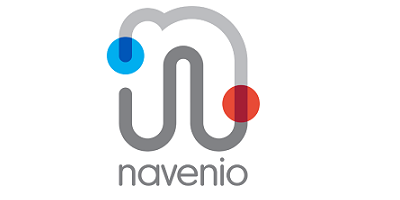The COVID-19 pandemic has catalysed a profound transformation within the healthcare sector, revealing an urgent need to modernise and enhance the way care is delivered. Amidst the global crisis, healthcare providers were compelled to swiftly adapt and integrate new technologies, striking a balance between ensuring medical accessibility and adhering to social distancing mandates. This period of accelerated digital adoption has provoked hope regarding the potential of cutting-edge generative artificial intelligence (AI) technologies—capable of generating outputs ranging from poetry to complex computer programs with near-human fluency—to revolutionise healthcare.
There’s no room for error in medicine, so while the whimsical errors of generative AI are often harmless in other contexts, they can bear serious implications in a field where stakes are invariably high. So, the question remains – how do we improve nurses’ experiences with technology without invoking further trouble?
The Need for Merger
The healthcare sector continues to face the issue of burnout among workers. The extensive paperwork required for electronic health records (EHR) is notably frustrating, especially for nurses who depend on technology for precise documentation of patient interactions.
Surveys from Canada in 2022 indicate that nearly 70% of nurses thought about changing their jobs, with more than 40% considering exiting the profession due to various factors, including staffing shortages, salary reductions, and workplace hazards. Additionally, the ageing baby boomer generation is contributing to a demographic shift, increasing the demand for nursing care and heightening the risk of burnout among nurses of all ages.
Conversely, the adoption of technology offers significant opportunities to transform nursing practices. Real-time location services (RTLS) and AI show potential for enhancing the capabilities of existing digital tools like EHR and nurse call systems. Industry specialists suggest that RTLS and AI could address the challenges of handling large patient volumes by simplifying crucial daily operations, thereby organising, and streamlining patient care. Hospitals that have embraced these technologies report notable improvements, including a 94% increase in task management efficiency and a 31% reduction in response times for services.
Technology Education
Introducing new practices into any healthcare discipline is by no means easy. Disrupting existing standards that work can cause more damage than benefit, hence the need for appropriate training around the new health technologies awaiting integration into the industry. Educational technologies, including simulations and virtual environments, have become indispensable in developing nurses’ competencies, deeply embedding principles of quality and safety into their professional ethos.
Looking forward, the Future of Nursing Report 2020–2030 envisions a healthcare system supported by nurses proficient in these digital innovations, leveraging them to address social determinants of health and bridge health equity gaps. This shift signifies a broader movement in nursing education towards utilising technology not only as a teaching tool but as an essential component of modern medical practice, aimed at enhancing patient care efficiency and efficacy.
The Technologies Driving Change
Despite the considerable strides made in recent years, the integration of digital technology within nursing continues to encounter significant hurdles. A persistent issue has been the profession’s struggle to stay abreast of the swift advancements in digital technologies and their profound influence on society at large. This gap has, in turn, constrained the potential advantages these innovations could offer to both nursing practice and patient care. In response to these persistent challenges and in anticipation of future demands, there’s a pressing need for nursing to undergo a comprehensive digital transformation. Below are just a few of the technologies driving this change.
Telehealth Programs
Telehealth programs and digital advancements have drastically reshaped nursing, breaking the barriers of traditional healthcare environments to provide remote monitoring, coaching, and triage for patients, especially those with chronic conditions. Additionally, nursing call systems have become essential in improving communication between healthcare providers and patients. These systems alert staff to urgent patient needs or dangers, like fall risks, enabling swift action to enhance care efficiency in critical moments. Patient data management has now become streamlined through the use of ERH systems as they offer a unified, easily accessible database that facilitates simple documentation and data exchange among professionals.
The integration of mobile technology, RTLS, and “smart systems” through EHRs and nurse call systems has led to significant improvements in healthcare delivery, with some hospitals noticing a 94% improvement in overall task volume and 31% reduction in service response time. These technologies allow nurses to anticipate service provider arrival times, enhancing patient communication and preparation. They also support services like patient transport and meal delivery, streamlining operations and allowing nurses to concentrate on core healthcare needs. Despite the benefits, this shift introduces challenges in policy, ethics, and adaptation, particularly for seasoned nurses unfamiliar with digital tools. Addressing these hurdles requires comprehensive training and support from healthcare systems to ensure nurses are proficient and comfortable with these technologies, ultimately improving their work experience and retaining skilled staff.
Putting it All Together
Nursing leadership at every level is urged to champion and meaningfully invest in the integration of nursing practices with digital health technologies. The imperative to adapt and incorporate digital innovations, from data analytics to virtual care models and the collaborative creation of digital health tools, is undeniable. Notwithstanding is the urgency behind the matter: delay or inaction could significantly set back the nursing profession, compromising its ability to deliver superior patient care in an increasingly digital future.
The current challenges facing nurses worldwide—intense workloads, staff shortages, and skill mismatches—underscore the urgent need for a transformative approach that prioritises systemic support and technological empowerment. Embracing digital advancements offers a path to alleviating these pressures, enabling nurses to achieve a balance between their well-being and professional responsibilities.
Author: Connie Moser, Chief Executive Officer, Navenio

















